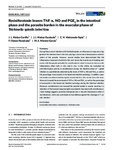
Please use this identifier to cite or link to this item:
http://ricaxcan.uaz.edu.mx/jspui/handle/20.500.11845/698Full metadata record
| DC Field | Value | Language |
|---|---|---|
| dc.contributor | 120273 | es_ES |
| dc.contributor.other | https://orcid.org/0000-0003-1324-4488 | - |
| dc.coverage.spatial | Global | es_ES |
| dc.creator | Muñoz Carrillo, José Luís | - |
| dc.creator | Muñoz Escobedo, José Jesús | - |
| dc.creator | Maldonado Tapia, Claudia | - |
| dc.creator | Chávez Ruvalcaba, Francisca | - |
| dc.creator | Moreno García, María Alejandra | - |
| dc.date.accessioned | 2019-02-28T18:13:26Z | - |
| dc.date.available | 2019-02-28T18:13:26Z | - |
| dc.date.issued | 2017 | - |
| dc.identifier | info:eu-repo/semantics/publishedVersion | es_ES |
| dc.identifier.issn | 1365-3024 | es_ES |
| dc.identifier.uri | http://localhost/xmlui/handle/20.500.11845/698 | - |
| dc.identifier.uri | https://doi.org/10.48779/40q9-0294 | - |
| dc.description.abstract | During the course of infection with Trichinella spiralis, an inflammatory response is triggered at the intestinal level in the host, playing a crucial role in the expulsion and elimination of the parasite. However, several studies have demonstrated that this inflammatory response is harmful to the host; hence, the importance of studying molecules with therapeutic potential like resiniferatoxin, which is known to have an anti-inflammatory effect both in vitro and in vivo. In this article, we evaluated the anti-inflammatory activity of resiniferatoxin during the intestinal phase of T. spiralis infection by quantitatively determining the levels of TNF-α, NO and PGE2 as well as the percentage of eosinophils in the blood and intestinal pathology. In addition, parasite burden was determined during the muscle infection. Our results show that resiniferatoxin lowered the serum levels of TNF-α, NO and PGE2, as well as the percentage of eosinophils in the blood and intestinal pathology during the intestinal infection. Moreover, resiniferatoxin also lowered the parasite burden in muscle, resulting in a reduction of the humoral response (IgG) associated to treatment with resiniferatoxin. These findings suggest a potential therapeutic use of the anti-inflammatory effect of resiniferatoxin, which also contributes to host defence against the challenge of T. spiralis infection. | es_ES |
| dc.language.iso | eng | es_ES |
| dc.publisher | Wiley | es_ES |
| dc.relation | wileyonlinelibrary.com/journal/pim | es_ES |
| dc.relation.uri | generalPublic | es_ES |
| dc.rights | Atribución-NoComercial-CompartirIgual 3.0 Estados Unidos de América | * |
| dc.rights.uri | http://creativecommons.org/licenses/by-nc-sa/3.0/us/ | * |
| dc.source | Parasite Immunology Vol. 39, No. 1, pp. 1-14 | es_ES |
| dc.subject.classification | BIOLOGIA Y QUIMICA [2] | es_ES |
| dc.subject.other | eosinophilia | es_ES |
| dc.subject.other | inflammation | es_ES |
| dc.subject.other | resiniferatoxin | es_ES |
| dc.subject.other | Trichinella spiralis | es_ES |
| dc.title | Resiniferatoxin lowers TNF-α, NO and PGE2 in the intestinal phase and the parasite burden in the muscular phase of Trichinella spiralis infection | es_ES |
| dc.type | info:eu-repo/semantics/article | es_ES |
| Appears in Collections: | *Documentos Académicos*-- UA Ciencias Biológicas | |
Files in This Item:
| File | Description | Size | Format | |
|---|---|---|---|---|
| JLMC resiniferatoxina 1. 2016..pdf | 2,39 MB | Adobe PDF |  View/Open |
This item is licensed under a Creative Commons License
